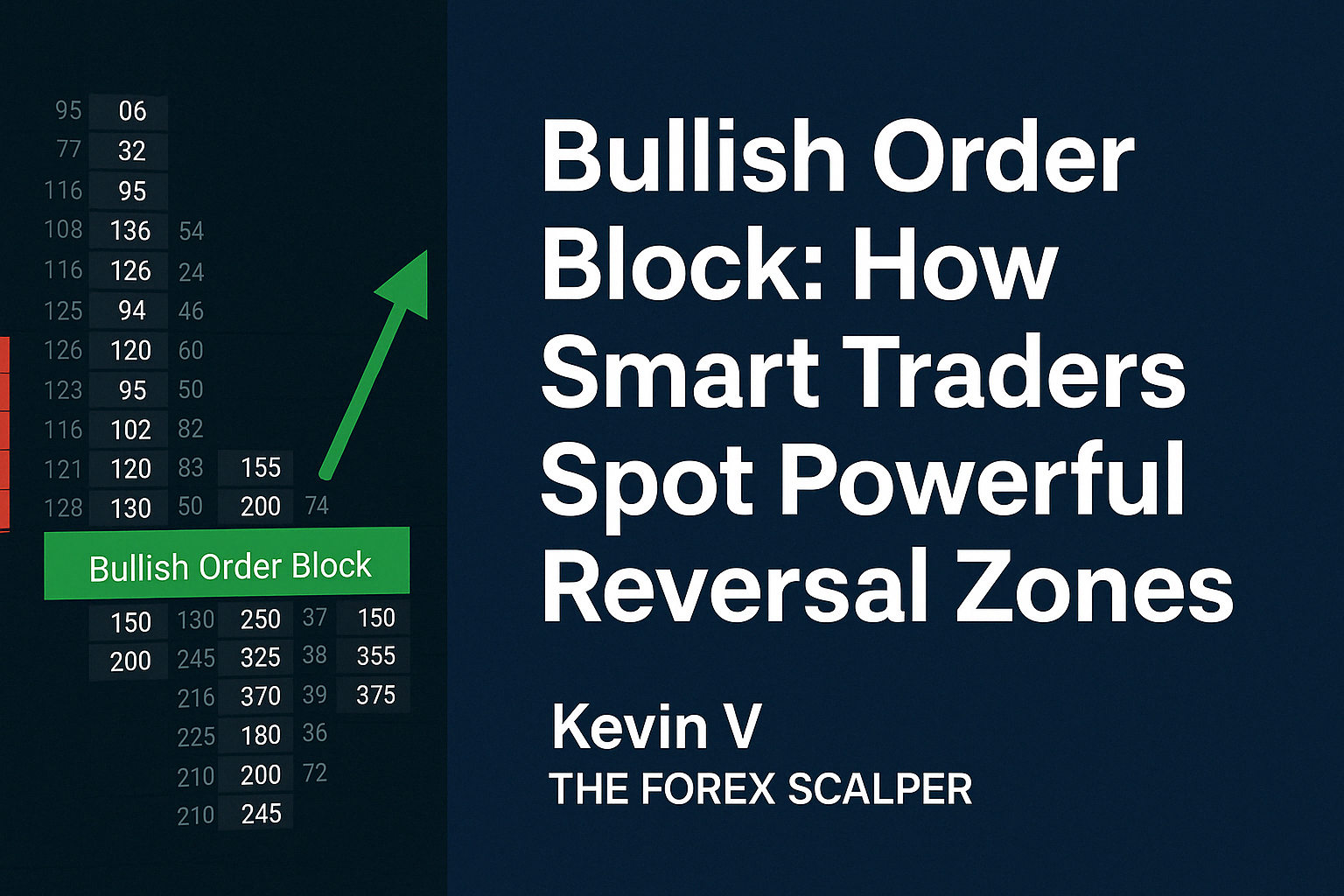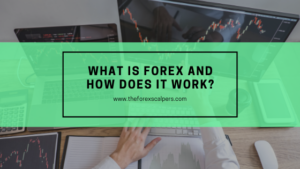Bullish Order Block: How Smart Traders Spot Powerful Reversal Zones
In the world of smart money trading, one term you’ll often hear is the order block. But what exactly is a bullish order block, and why is it such a powerful tool in Forex and price action trading?
Whether you’re just starting out or you’re diving deeper into ICT (Inner Circle Trader) concepts, learning how to identify order blocks can help you trade more like the institutions. In this blog, we’ll cover everything you need to know:
-
What a bullish order block is
-
How to recognize key institutional price zones
-
The difference between bullish and bearish setups
-
How to use order flow to confirm entries
-
And whether indicators are helpful or not
Let’s get started.
📖 What Is It and Why It Matters / Bullish Order Block
To begin with, an order block is a price zone where large institutional traders like banks or hedge funds, entered the market in size. These areas are typically formed right before a major price move, and they often become zones where price reacts again in the future.
A bullish order block, specifically, is the last bearish candle (or small group of candles) before a strong upward move. It’s a footprint of institutional buying where smart money absorbed retail selling pressure before launching price higher.
Because of this, when price returns to that zone later on, it often acts as a high-probability support level.
🔄 Understanding the Difference Between Key Institutional Zones
Although they may appear similar at first glance, bullish and bearish order blocks serve very different purposes. Therefore, knowing how to distinguish them is essential for any price action trader.
| Feature | Bullish OB | Bearish OB |
|---|---|---|
| Candle Type | Last bearish candle before a bullish move | Last bullish candle before a bearish move |
| Function | Long entry zone (support) | Short entry zone (resistance) |
| Found At | The bottom of a downtrend | The top of an uptrend |
| Institutional Bias | Buying | Selling |
By learning to read both types of OBs, you’ll be able to position yourself on the right side of the market more consistently.
👁️🗨️ How to Spot These Zones in Forex Charts / Bullish Order Block
If you’re wondering how to identify order blocks, you’re not alone. Here’s a simple yet effective process:
-
Look for a strong bullish breakout
-
Find the last bearish candle before the move
-
Mark the open and close of that candle (this is your OB)
-
Wait for price to return to that zone
-
Enter only after you’ve seen confirmation
In many cases, you’ll notice that these OBs align with other concepts—like liquidity grabs, Fair Value Gaps (FVGs), or structural retests. That’s why adding context and confluence makes your OB analysis much more reliable.
📊 Real Examples from Smart Money Price Behavior
Let’s look at an example using EUR/USD on the 15-minute chart.
Imagine price is falling, making a series of lower lows. Suddenly, there’s a strong bullish engulfing candle that breaks the most recent lower high. You zoom out and notice a small bearish candle right before this move.
That candle is your bullish order block.
As price retraces back into that zone later, you notice delta shifting positively and an aggressive buy imbalance showing on your footprint chart. You enter long—and price continues upward. This is how smart money trades, and now you can spot it too.
🧠 Confirming Price Zones with Volume and Order Flow
Now that you’ve found your OB, the next step is confirmation. This is where order flow trading comes in and gives you an edge most retail traders miss.
With tools like:
-
Footprint charts, you can see exactly where volume is being absorbed or rejected
-
Delta volume shows if buyers or sellers are in control at that exact moment
-
Bid/ask imbalances confirm who’s dominating inside the OB zone
If price returns to your OB and volume data aligns, you’re no longer guessing—you’re following the money.
👉 Learn how to apply these tools in real time with the
Orderflow Trading Masterclass
🛠️ Are Auto Tools Helpful? Bullish Order Block
While many traders rely on visual analysis, some prefer using an order block indicator to save time and automate part of the process. These tools can be helpful, especially for new traders, but they’re not perfect.
It’s still important to:
-
Validate the level with structure and volume
-
Ensure it aligns with overall market context
-
Look for price confirmation before entering
So, although indicators can assist, manual observation paired with flow data remains the most effective strategy.
📘 Where to Learn This Strategy Properly / Bullish Order Block
To truly master order block trading, it’s not enough to just know what they look like. You must also understand why they form, when to trust them, and how to manage risk around them.
That’s why we recommend:
👉 Supply & Demand Trading Course – perfect for building a solid foundation around OBs, FVGs, and market structure.
And for real-time execution and confirmation:
👉 Orderflow Masterclass – ideal for understanding delta volume, footprint charts, and institutional execution patterns.
Together, these courses give you the knowledge and tools to trade confidently—no matter the market condition.
⚙️ Which Broker Works Best with Price Action Tactics
Of course, even the best strategy won’t help if your broker lags or charges high spreads. That’s why your execution partner matters—especially when trading smart money setups.
✅ We recommend IC Markets
-
Raw spreads from 0.0 pips
-
Perfect for scalping and smart money entries
-
Ultra-fast execution
-
MT4, MT5, and cTrader platforms available
-
Widely trusted by institutional and retail traders alike
When timing matters, IC Markets helps you stay one step ahead.
🔚 Final Thoughts on Institutional Entries
At the end of the day, a bullish order block is much more than just a candle formation. It’s a roadmap of smart money positioning, and if you learn to read it properly, you’ll be trading alongside—not against—the market makers.
✅ Spot the OB
✅ Wait for price to return
✅ Confirm with volume
✅ Execute with confidence
With time and practice, these setups will become second nature—and your trading will reflect that.








